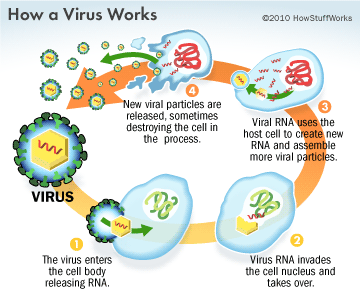Possible Treatments: Chloroquine
**Disclaimer: Chloroquine is still in the preliminary stages of clinical testing and has not been approved as a treatment against COVID-19.
Please do not attempt to self-medicate - any medication should be prescribed by a doctor and used under medical supervision.**
What is Chloroquine?
Chloroquine is a drug treatment that was first created by scientists in Germany in 1934. Since its introduction, chloroquine has become the most prescribed drug in the world to fight against malaria.
And why Chloroquine?
Chloroquine is already used as a drug treatment against multiple viruses. Most notably, it has been seen to lessen viral activity in HIV, Hepatitis A, B, and C, as well as in Zika and most importantly, the 2002 outbreak-causing SARS virus. Due to its past success, scientists are currently working on clinical trials of chloroquine drug treatment on COVID-19 patients.
How does it work?
Chloroquine takes advantage of how viruses reproduce and spread throughout our bodies. By nature, viruses do not have the right machinery to create copies of themselves and so, they must hijack our own body cells to do so. When a virus enters the body, it attaches to our body cells and takes control by re-wiring the cell’s instructions to make more copies of the virus instead of completing its normal healthy cell duties.
Scientists believe chloroquine can stop coronavirus in a few different ways. The most common way that it works is by stopping the virus particles from attaching to our body’s cells. Without attachment, they cannot hijack our cells to begin copying themselves and spreading. Another way that chloroquine can work is through interfering with the release of virus particles from our cells (this method has actually been successful in treating another coronavirus strain in animals). For example, if the virus had successfully infiltrated our body’s cells and begun to make copies of itself, the drug can stop the release of these copies, meaning the virus cannot spread further than the original infiltrated cell.
Both of these methods of interfering with coronovirus has been shown in both MERS and SARS lab tests.
The picture above shows the general process of a virus infiltrating and using our bodies’ cells.
So then what is Hydroxychloroquine?
Hydroxychloroquine is a slightly altered version of chloroquine which allows the drug to work faster and decreases side effects. When mixed with another antibiotic, azithromycin, it has been seen to decrease the length of infection in COVID-19 patients.
In The News
As of 30 March 2020, the American Food and Drug Administration (FDA) has given emergency approval for the use of hydroxychloroquine in an attempt to combat the spread of COVID-19. The US government plans to distribute millions of doses of the drug to hospitals across the country in hopes of treating those with severe symptoms, claiming that the “the possible benefit outweighs risk”. Though the drug looks promising, physicians are urging patients to be mindful and understand the side-effects that may be hazardous to those with specific pre-existing medical conditions.
Scientific Journal Sources:
https://www.sciencedirect.com/science/article/pii/S0924857920300881
https://www.sciencedirect.com/science/article/pii/S0166354220301145?via%3Dihub
Media Sources:
https://www.connexionfrance.com/French-news/French-researcher-in-Marseille-posts-successful-Covid-19-coronavirus-drug-trial-results
https://www.washingtonpost.com/business/2020/03/30/coronavirus-drugs-hydroxychloroquin-chloroquine/
Image Sources:
https://www.somagnews.com/wp-content/uploads/2020/03/g1-3-e1584732311717.jpg
https://cdn.hswstatic.com/gif/virus-danger-diagram.gif


